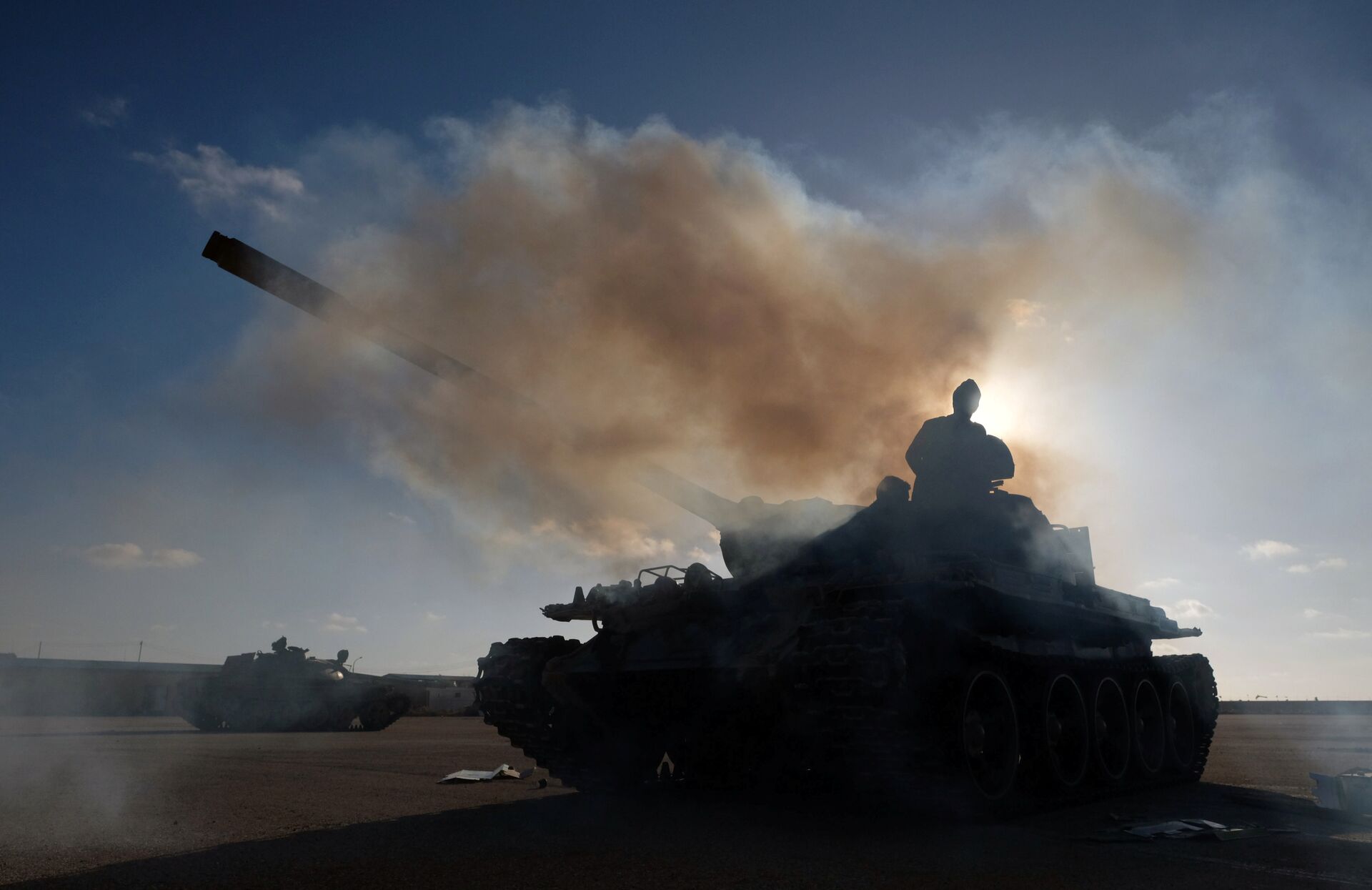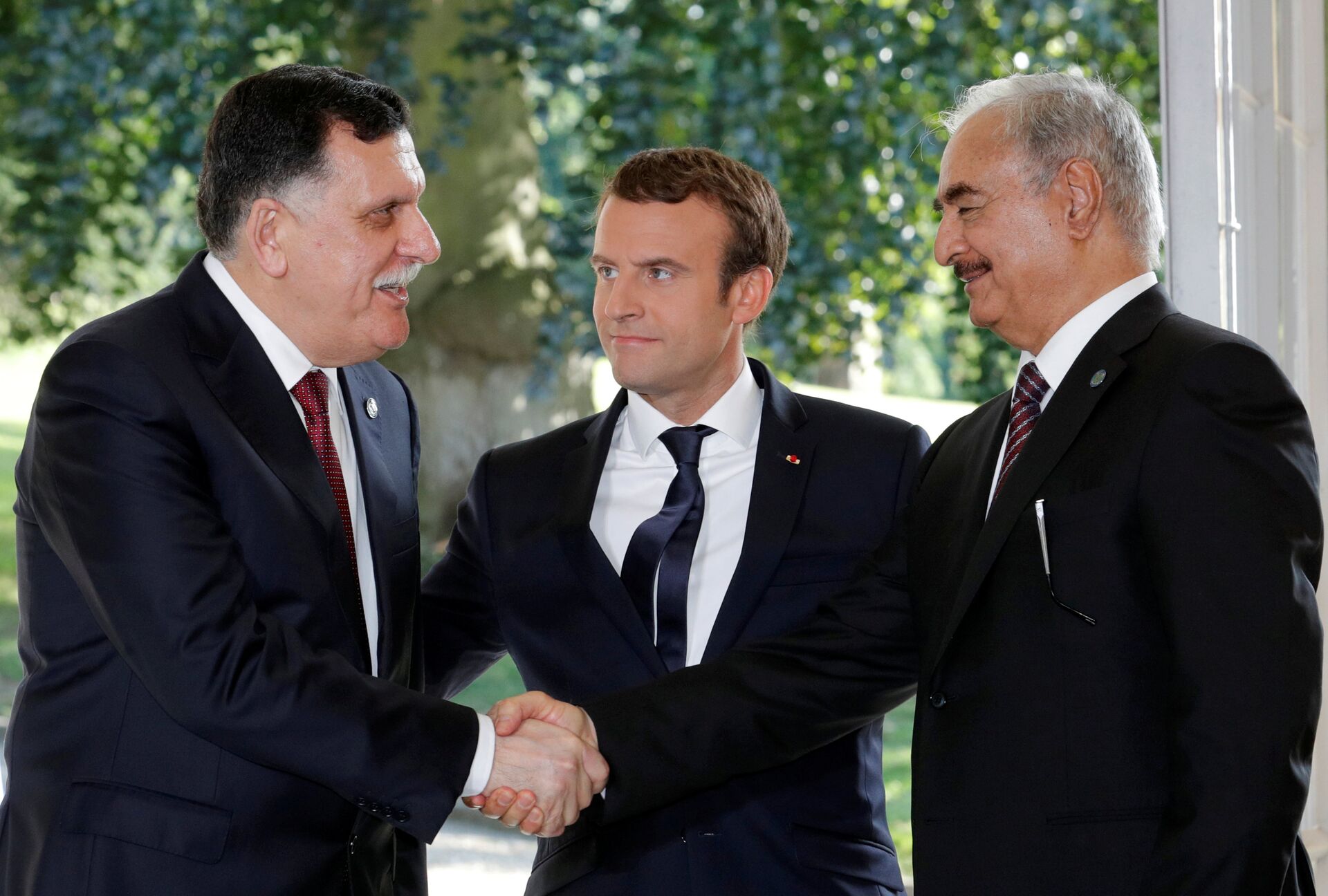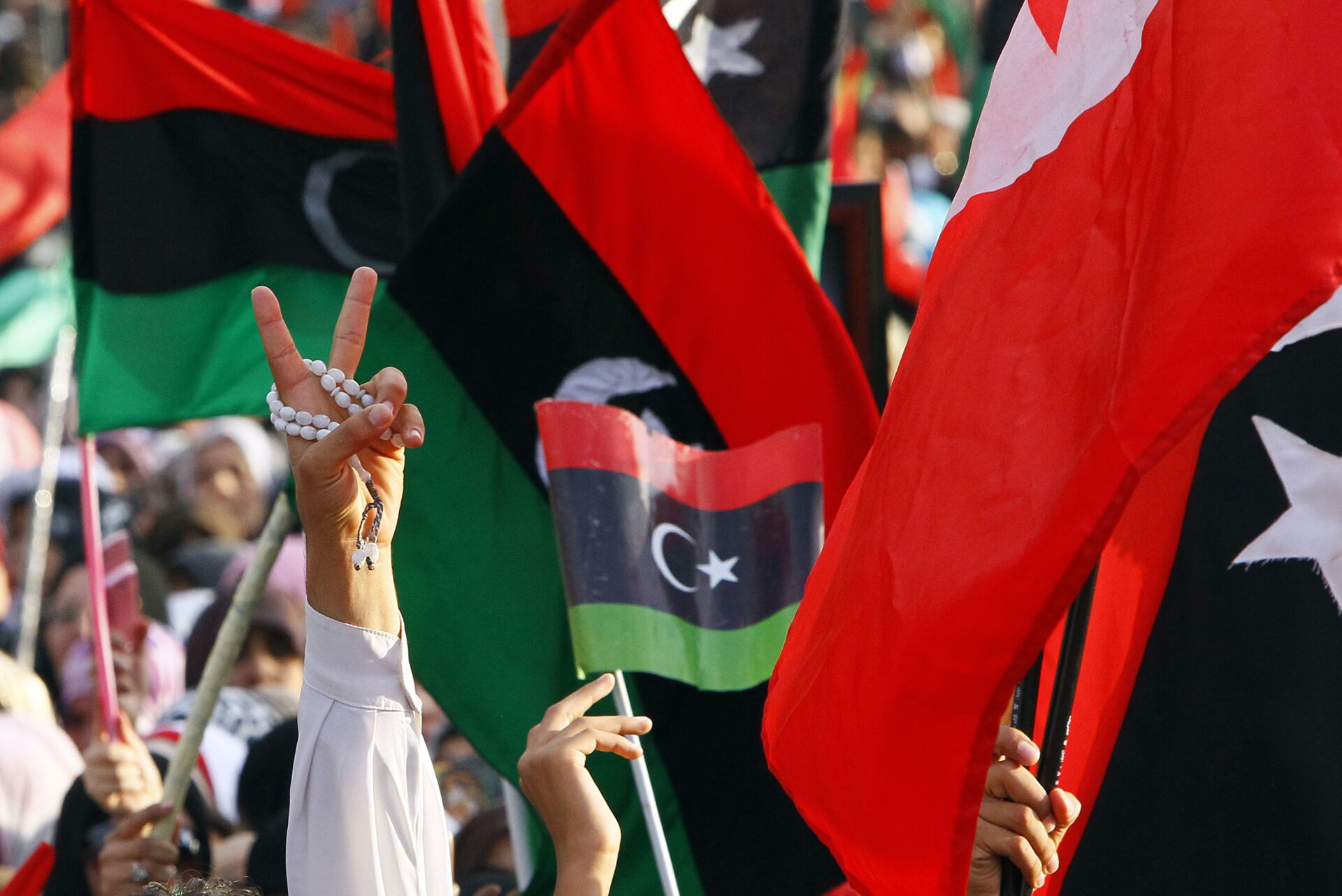Libya is Readying Itself for Elections But Are They Even Possible?
09:28 GMT 21.12.2021 (Updated: 11:04 GMT 24.11.2022)

© AP Photo / Mohammad Hannon
Subscribe
The oil-rich nation was supposed to head to the polls in 2019 to elect a new president, but the date was postponed due to the raging war in the country. Now with the battles finally over, many are hopeful the race will create unity, but experts have already warned it might only escalate the situation.
On 24 December 2021, 2.5 million Libyan voters will flock to polling stations across the nation to choose their next president.
Libya descended into chaos after the outbreak of a NATO-backed revolt in 2011 that toppled then-leader Muammar Gaddafi, who was subsequently murdered by rebels.
Since then, the country has largely been split. In the East, it has been under the control of General Khalifa Haftar and his Libyan National Army. In the West, it fell under the internationally recognised Government of National Accord, while the South of the oil-rich nation has been in the hands of various tribes and a number of extremist groups.

Members of Libyan National Army (LNA) commanded by Khalifa Haftar, get ready before heading out of Benghazi to reinforce the troops advancing to Tripoli, in Benghazi, Libya April 13, 2019
© AP Photo / Esam Omran Al-Fetori
December's general elections are intended to help the North African nation to move past the decade of violence and establish unity. But taking into account the current atmosphere in Libya, there is no guarantee they will be held.
What are the issues plaguing Libyans and their dreams of stability? Here are the three main obtacles.
Technical Difficulties
With less than a week left until the nation heads to the polls, the official list of candidates hasn't been released yet. The names of the contenders for the top position were supposed to be revealed 15 days before the elections but on 11 December it was announced that the deadline had been pushed back indefinitely.
Some of the names have already been unveiled. General Haftar is one of them. Another presidential candidate is the son of the slain leader, Seif Al Islam Al Gaddafi. But the identities of dozens of others are still a mystery and if this is the case, Libyans will find it hard, if not impossible, to determine their next head of state.
Acute Security Issues
The ouster of Muammar Gaddafi created a political void that was soon filled by various terrorist groups including Daesh*. Although their presence in the oil-rich country was largely eliminated in 2016, pockets of extremists still exist in Libya and they continue to pose a threat to the nation's stability.

French President Emmanuel Macron stands between Libyan Prime Minister Fayez al-Sarraj (L), and General Khalifa Haftar (R), commander in the Libyan National Army (LNA), who shake hands after talks over a political deal to help end Libya’s crisis in La Celle-Saint-Cloud near Paris, France, July 25, 2017
© REUTERS / Philippe Wojazer
In June, Daesh* militants carried out a terrorist act in the southwestern Libyan city of Sebha, killing a number of military officers and injuring several others.
The dire security situation has placed Libya on the list of the world's most dangerous countries, and under such conditions it will be extremely difficult to maintain stability amid national polls.
Bitter Rivals
So far, 96 contenders have registered for the elections. Many represent the Government of National Accord and its affiliates. Others belong to the camp of General Haftar and his allies.
Each of those camps is determined to establish full control over the country that ranks 9th in the world for its proven oil resources. Neither of them is prepared to admit defeat and let the other side take over, something that has already sparked fears that the upcoming polls will plunge Libya into yet more political and security turmoil.
The involvement of foreign powers in Libya also poses a problem, with each pulling in its own direction.
Turkey, for example, has an agreement with the Government of National Accord that provided Ankara with access to the rich oil reserves located in its area in exchange for military support against the forces of General Haftar.

A Libyan flashes the V sign to celebrate at Saha Kish Square in Benghazi, Libya, Sunday Oct. 23, 2011 as Libya's transitional government declare liberation of Libya after months of bloodshed that culminated in the death of longtime leader Muammar Gaddafi.
© AP Photo / Francois Mori
Egypt, on the other hand, has largely backed Haftar because it believed he would restore stability in the region, eliminate the pockets of extremism and keep the Turks, Cairo's main regional challengers, at bay.
Those players, as well as other regional and international players, will be watching the presidential race closely. The second round of elections is expected on 24 January. If everything goes according to plan, the name of the new president will be revealed shortly thereafter.
*Terrorist organisation banned in Russia and many other nations



